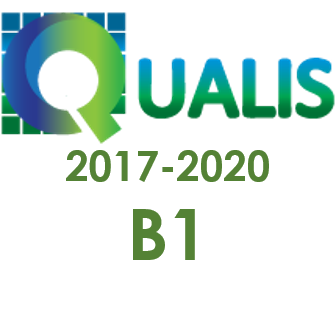Traditional knowledge in the exercise of sovereignty and food security of rural, indigenous and peasant communities: an alternative for community sustainability
DOI:
https://doi.org/10.22481/odeere.v6i2.9857Keywords:
traditional knowledge, food sovereignty and security, community sustainability.Abstract
The text presents some reflections on the importance of rescuing the traditional knowledge of rural, indigenous and peasant communities about agricultural and food practices as a resource and mechanism to promote food security and thus community sustainability. It begins with a bibliographic review on the subject, and specific cases are presented, as an example, where the experience has become an opportunity for some communities to assert their land management rights, the processes that are required for diversity of crops, their own production system and thus mitigate the effects of poverty and consolidate an alternative proposal for the exercise of sovereignty and food security of the communities.
Downloads
References
ANGULO, Nerkis. Manipulación genética de los alimentos. Controversias bioéticas para la salud humana. Comunidad y Salud. Obtenido de http://ve.scielo.org/scielo.php?script=sci_arttext&pid=S1690-32932010000200009, 2010, pp 71-78.
BINIMELIS, Rosa; ESCURRIOL, Veronica; RIVERA, Marta. Soberanía alimentaria, transformación artesanal y equidad de género. Mundabat, 2012.
CONABIO-GIZ. Conocimiento tradicional asociado a los recursos biológicos. Ciudad de México: Comisión Nacional para el Conocimiento y el Uso de la Biodiversidad (CONABIO)-cooperación alemana al desarrollo sustentable de México (GIZ). Obtenido de https://www.giz.de/de/downloads/giz2017-es-biodivers-abs.pdf, 2017.
Lahoz, D. Mujeres campesinas y su papel en el sistema alimentario en México. Oxfam. Obtenido de http: //oxfammexico.org/crece/wp-content/uploads/2012/12/mujeres_campesinas_2012.pdf. 2011.
LOPES, María; KUBO , Rumi. Segurança Alimentar e Nutricional e Povos Indígenas: a experiência dos Asheninkas do Alto Rio Envira com o Programa de Aquisição de Alimentos (PAA). Revista Paranaense de Desenvolvimento , 2017. pp 195-210.
MARISCAL, Araceli; RAMÍREZ, Cesar; PÉREZ, Alfonso. Soberanía y Seguridad Alimentaria: propuestas políticas al problema alimentario. Economía y Políticas Públicas(69), 2017. pp - 9-26.
MELO, Mónica. Reflexiones sobre el uso de huertas escolares como propuestas pedagógicas y didácticas para el abordaje de la problemática en soberanía y seguridad alimentaria, en el nivel escolar de básica secundaria. Bio-grafia. Escritos sobre la biología y su enseñanza, 2019. pp- 235-245.
MESA, Mónica; MAYORGA, María. (2013). Alimentos, poder y mujeres. Entretejiendo sabores y saberes. X Jornada de Sociología. Facultad de Ciencias Sociales. Universidad de Buenos Aires. 2013.
MICARELLI, G. Soberanía alimentaria y otras soberanías: el valor de los bienes comunes. . Revista Colombiana de Antropología, 2018. 119-142.
MOLINA, Adela; PÉREZ, Rocio; BUSTOS, Edier; CASTAÑO, Constanza; SUÁREZ, Oscar; SÁNCHEZ, María. Mapeamiento Informacional Bibliográfico de Enfoques y Campos Temáticos de la Diversidad Cultural: el caso de las revistas CSSE, Sci Edu. And Sci & Edu. IX Encontro Nacional de Pesquisa em Educação em Ciências – IX ENPEC . 2013
OMPI. Organización Mundial de la Propiedad Intelectual. Recuperado el 2021 de 10 de 9, de Los conocimientos tradicionales, definiciones y términos: https://www.wipo.int/portal/en/index.html. 2002.
Rosas, Nadia; Rico, Tyanif. El papel de las mujeres en la construcción de la soberanía alimentaria. Revista de Investigación y divulgación sobre los estudios de Género. 2017. pp 95-118.
UNESCO. (S/F). Organización de las Naciones unidas para la educación, la ciencia y la cultura. Recuperado el 2021 de 10 de 9, de Sistema de conocimientos locales e indígenas: http://www.unesco.org/new/es/natural-sciences/priority-areas/links/related-information/what-is-local-and-indigenous-knowledge
VALLADARES, Liliana. ¿Qué son los conocimientos tradicionales? Apuntes epistemológicos para la interculturalidad. Cultura y Representaciones Sociales, 2015. pp 61-101.
Downloads
Published
How to Cite
Issue
Section
License
Copyright (c) 2021 ODEERE

This work is licensed under a Creative Commons Attribution 4.0 International License.
You are free to:
Share - copy and redistribute the material in any medium or format; Adapt - remix, transform, and build from the material for any purpose, even commercially. This license is acceptable for Free Cultural Works. The licensor cannot revoke these freedoms as long as you follow the terms of the license.
Under the following terms:
Attribution - You must appropriately give credit, provide a link to the license, and indicate if any changes have been made. You may do so in any reasonable way, but not in a way that suggests that you or your use is endorsed by the licensor.
There are no additional restrictions - You cannot apply legal terms or technological measures that legally restrict others to make any use permitted by the license.














